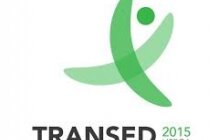14th International Conference on Mobility and Transport for Elderly and Disabled Persons
Mié, 10/12/2014
The 14th International Conference on Mobility and Transport for Elderly and Disabled Persons will be hosted on 28 to 31 July 2015 by Instituto Superior Técnico (IST), a prestigious school of Engineering, Science and Technology of the Universidade de Lisboa (www.ist.eu). The Conference theme is “Aim and manage to implement inclusive access for all”
All conference topics are very open and can be approached from any of the two referred streams. For each topic a number of sub-topics are open from the outset but others can be created. In addition, special sessions can also be envisaged and participants interested in organizing it should contact the Conference Chair for that purpose.
Topic A: Policy approaches for mobility needs and solutions for the ageing and disabled population
The demographic evolution of Society enables to foresee next decades with a substantial increase of ageing population with different degrees of disabilities. In addition, changes in patterns of living and more monoparental families are formed which represent users of temporary restrictions. Cities and regions must reflect in these changes and adjust their policies accordingly so that user needs are satisfied
Subtopics:
A1 - Meeting the needs of people with disabilities in light of changing demographics;
A2- The economic and social implications of living and coping with disabilities;
A3- Cases in policy actions: turning legislation into action.
Topic B: Restricted accessibility as an integrated part of mobility management.
Restricted accessibility or reduced mobility (different parts of the world use different designations) should not be managed as an isolated segment. This approach has led to exclusion of these groups of users despite providing them with increase quality of service. This approach must be changed towards a full integration of restricted accessibility in mobility management enabling citizens with temporary or permanent mobility to benefit from a complete inclusion in society. Mobility and accessibility are instruments for that inclusion.
Subtopics:
B1 - Defining and measuring accessibility;
B2 - Creating accessible urban environments;
B3 – Restricted accessibility in urban transport: success stories;
B4 - Rural accessibility issues;
B5 – Transport contribution for inclusive tourism;
B6 - Ensuring joined approach to planning and delivery for door to door mobility;
B7 - Designing and delivering accessibility for major events (e.g. Olympics etc.).
Topic C - Finding solutions through innovation
Innovation is a wide encompassing concept with an extensive meaning that can go from organization of processes to invention of new technology. Today a major challenge in mobility management is to bridge from mass transit to the capillary needs of the different segments of users. Innovation is required to create new and flexible services that can complement the regular public transport and provide an effective seamless mobility chains for all users, with and without disabilities.
Subtopics
C1 - New technologies and tools;
C2 - Engaging with users for flexible mobility solutions;
C3 - Case studies of innovative approaches to restricted accessibility;
C4 - New impairment realities (e.g. young families, monoparental families, ageing impairment, etc)
****
Background of TRANSED series of conferences
Founded in the 1970's by Professor Norman Ashford (University of Loughborough) and Professor William Bell (University of Florida), the International Conference on Mobility and Transport for Elderly and Disabled People has been held twelve times in nine countries. From its roots as a small, specialised meeting of researchers, the Conference today attracts between 600 and 1,000 delegates from up to 40 nations on six continents (see Chronology of Conferences at Annex A). Conference proceedings are a standard reference for researchers, planners and operators alike, and are referenced in the TRB Transport Research Information Database TRID (http://trid.trb.org/).
Professionals and end users throughout the world recognize the TRANSED series Conferences as a major forum for scientific and conceptual advances in the pursuit of mobility and access for elderly and disabled people as well as for the dissemination of practical information on policy formation and implementation of advances in our field around the world.
In recent times, the Conference has been held every three years, with the exception that the New Delhi Conference in 2012 will be held only two years after the preceding Conference. From the outset, the TRANSED series of Conferences have been held primarily to serve the needs of transport professionals; including researchers, policy makers, planners, administrators and operators. Elected government officials and end users are also key participants at the Conferences. The main objective of the Conference remains to promote and encourage the development of transport services and systems that meet the needs of people with a disability through the exchange and dissemination of knowledge and experience.
TRANSED 2015 takes the ambitious goal of enlarging the scope of the conference to all sorts of disabilities and sources of exclusion (e.g. physical, logical/cognitive, economic/financial, temporary/permanent, etc). In New Delhi, September 2012, we have set the scene for an overarching topic of the 2015 conference that is “Aim and Manage for Inclusive Access”. Attached you can find a presentation with our vision for the upcoming conference.

















